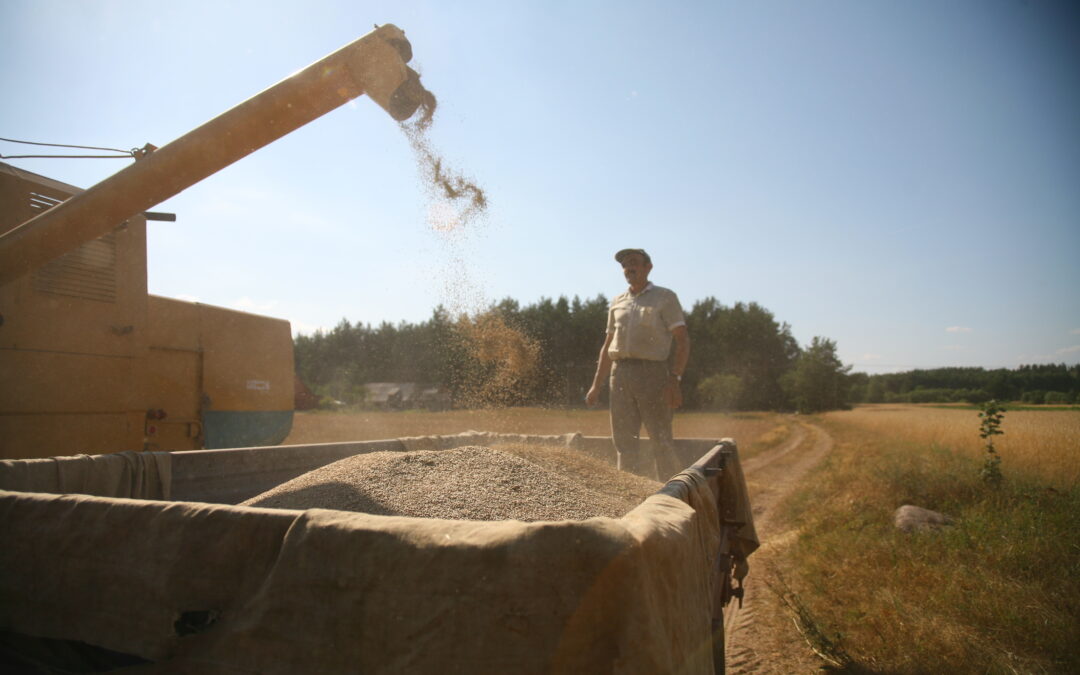Ukrainian agricultural products, including grain, will once again be allowed to transit through Poland after the government partially lifted the ban it introduced last weekend. It followed talks with Kyiv over guarantees that the grain would not enter the Polish market. An import ban on Ukrainian agricultural products remains in place.
At around 2 a.m. this morning, a regulation signed by development minister Waldemar Buda went into force allowing transit to resume, reports news website Onet. That followed another regulation by the finance ministry yesterday evening setting out conditions for transit.
Transports are to be sealed, escorted and electronically tracked, to ensure that the products do not remain in Poland. Polish farmers have been holding protests against Ukrainian grain imports, which they say have lowered prices on the market.
Tranzyt ukraińskiego zboża. O godz. 2 w nocy zmieniono przepisy https://t.co/MiTXiKzGNC
— Onet Wiadomości (@OnetWiadomosci) April 21, 2023
On Saturday, Poland unexpectedly introduced a ban on most agricultural imports and transit from Ukraine. Hungary and Slovakia then announced similar decisions. That led to criticism from not only Kyiv but also the European Union, which has exclusive competence over trade policy.
Following talks on Monday and Tuesday, the Polish and Ukrainian governments announced that they had reached a deal that would allow transit to resume by Friday this week.
Under the agreement, transports will be escorted by the Polish customs and tax service. “Not a ton of Ukrainian agricultural product will stay in Poland,” said agricultural minister Robert Telus on Tuesday.
The Polish and Ukrainian governments have reached an agreement to allow Ukrainian grain to be transported through Poland.
The transports, which will resume later this week, will be escorted and electronically tracked to ensure they do not remain in Poland https://t.co/okQKkTUhNh
— Notes from Poland 🇵🇱 (@notesfrompoland) April 18, 2023
“We are sure that Ukrainian exporters will approach these requirements responsibly,” said Ukraine’s economy minister Yulia Svyrydenko. “We are aware of the situation of Polish farmers…[and] we are very grateful to the Polish nation for your support and solidarity.”
Speaking yesterday, Buda made clear that, while transit can resume, “we are maintaining the ban on importing [Ukrainian agricultural] goods to Poland”. He added that the government is seeking to obtain an agreement with its EU partners on this issue.
“Only the rather severe action we took on Saturday led to a situation in which the European Commission began to act,” said Buda, quoted by Dziennik Gazeta Prawna. “Everything indicates that our solutions will become European law.”
The @EU_Commission has criticised Poland and Hungary’s decisions to ban the import of agricultural produce from Ukraine.
“Trade policy falls within the exclusive competence of the EU, and therefore unilateral action is unacceptable,” says a spokeswoman https://t.co/qd2srl4W7O
— Notes from Poland 🇵🇱 (@notesfrompoland) April 16, 2023
Main image credit: GRZEGORZ DABROWSKI / Agencja Wyborcza.pl

Daniel Tilles is editor-in-chief of Notes from Poland. He has written on Polish affairs for a wide range of publications, including Foreign Policy, POLITICO Europe, EUobserver and Dziennik Gazeta Prawna.




















